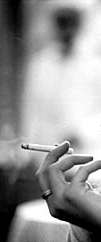Descending from the low mountain tops of the southeast Rhodopes, the orange roof-tops and high rise apartment blocs of Krumovgrad appear not unlike most small provincial towns of Bulgaria's economically debilitated southeast. Located some 33 kilometers southeast of Kârdjali—the provincial capital and one of two regional transport hubs to Turkey—Krumovgrad is one of the final destinations on the frontier bordering Greece and Turkey.
Populated by Bulgarians, Turks, Pomaks and Muslim-Roma, Krumovgrad is a microcosm of the ethnic assemblage of the Balkan Peninsula. Named after the legendary Khan Krum, the city has served as a mercantile crossroads for centuries. Today it is one of countless rural communities struggling for economic and cultural survival in a desolate land far from the relative economic stability of cities like Plovdiv and Sofia.
Despite its economic hardships, Krumovgrad serves as something of a border-region mini-center for the surrounding villages. Each Friday, local farmers and merchants gather in the city's center and peddle their goods and services at the local Pazar. The town of approximately 3000 inhabitants seems to double, and suddenly the streets are filled with the hustle and bustle of commerce. Children from the surrounding villages commute to and from Krumovgrad to attend one of the two local high schools. Church bells toll on the hour. The muezzin beckons the Muslim population (nearly 90 percent in the region) to prayer from the lone minaret of the town's only mosque.
Outside of the region, opinions of southern towns like Krumovgrad are far from positive. Known for its staggering poverty and high Muslim population, the region is considered at best undesirable, and at worst god-forsaken. The mental perception displayed in the collective Bulgarian mind is one of low education, high crime and filth. This is not the case, however. Having taught English in one of the local high schools, I discovered a high level of academic commitment and an overwhelmingly strong parental desire for the children to excel. In general, despite of the challenging economic situation, I encountered a high degree of professionalism and an honest and relentless work ethic.
However, the sad truth remains: most people are looking for a way out. After the mass exodus of Turks in the late 1980s, entire villages were left abandoned. Empty houses and burned out buildings are all that remain of former settlements dotting the countryside. Southeast Bulgaria has seen its population dwindle by an estimated 50 percent in the past twelve years. Now with the border to Turkey closed, many must resort to illegal nighttime border crossings—paying hundreds of dollars for the hope of reuniting with friends and relatives on the other side. Others seek work in Western Europe or green cards to the United States. With an unemployment rate of 17.08 percent, Krumovgrad's hope for economic revitalization seems to be ebbing with the ever-growing tide of workers, students and émigrés seeking their livelihood elsewhere.
Tobacco farming
The land surrounding Krumovgrad in the Kârdjali region is almost entirely covered with green tobacco fields. South Bulgaria's temperate and dry summer climate makes it ripe for tobacco farming. Planted in the early spring and harvested in the autumn, the annual tobacco crop is often times a family's only source of income. Many other families grow tobacco on smaller tracts of land as a supplement to their regular, poverty level wages.
Tobacco farming is by no means highly profitable. Resources and farming equipment are scarce. The work is time consuming, backbreaking and dirty. People for whom tobacco is the only means of survival work large tracts of land, beginning before sunrise and remaining in the fields until long after sunset. Those who have full-time work sacrifice their evenings and weekends either to tend their own fields or to assist family or friends who work the land.
Although a full season lasts over half the year, the cash that a family brings in for its efforts is minimal. Every year, low prices and a saturated market are the bane of the tobacco farmers' existence. Though tobacco firms such as Bulgartabac, Daimon-Bulgaria and Niki-BT generally compensate the farmers in a timely manner, the average price paid per kilo of shredded tobacco leaves is a paltry USD 1.75 to 2.00.
It is rumored that less than 30 kilometers to the south—in Greece—tobacco prices reach USD eight per kg. Each autumn, the national media provide coverage of disgruntled farmers burning bales of tobacco in protest of low prices.
Fresh hope from Greece?
For several years there has been talk of opening a new international border crossing between Bulgaria and Greece at Makaza. Currently, the only two points are at Kapitan Andreevo, near Svilengrad at the Bulgaria, Greece, Turkey tri border and Kulata in the southwest corner of the country. Neither crossing offers any geographical convenience or support to trade in the Kârdjali, Krumovgrad region.
By opening Makaza (approximately 50 km south of Kârdjali), new markets may arise on both sides of the border. Offering an alternative to the traditional overland route through Kapitan Andreevo will surely add new life to the stagnant economy of southeastern Bulgaria. A sharp increase in the amount of traffic moving to and from Greece could create numerous business opportunities to a broad spectrum of commerce and industry. Its proximity to the Aegean Sea could create new markets for many goods, including tobacco.
Local Bulgarians have no delusions, however, about the merits of a new border crossing in their region. Aside from the infrastructural obstacle of repairing or rebuilding a highway to support the expected traffic, the new crossing may turn out to be a Pandora's box, unleashing organized crime and drug trafficking throughout the peaceful region.

|




